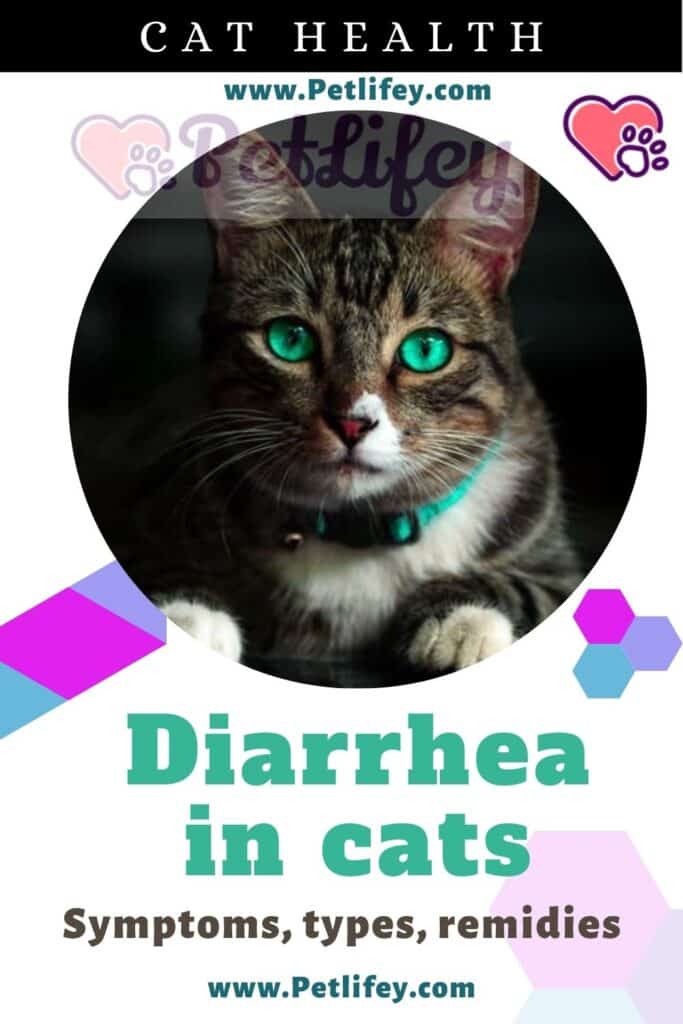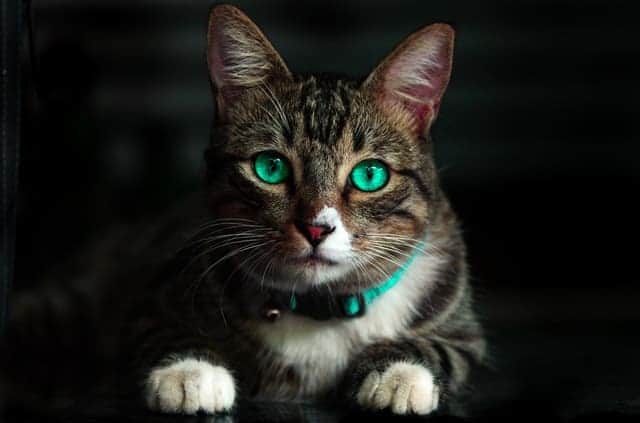
The diarrhea in cats is one of the most common diseases of these animals. And it is that, as it happens with people, cats also have problems related to their digestion and when it comes to eliminating. Not surprisingly, veterinary studies indicate that diarrhea in cats accounts for almost a third of visits to these specialists in the health, diet and behavior of these animals. In fact, these three concepts may be related to diarrhea in cats. Among other things, because these cats have a very short and sensitive intestinal tract.
Therefore, as we understand that cat owners can feel bad when they see them suffer from these decompositions, we are going to explain to you how you can correctly interpret these signals. And that is how we have to consider them. Diarrhea are external manifestations of cat health problems that go inside.
Do not forget, although it may be somewhat unpleasant, to check the status of your cat’s excrements, since they will provide you with really reliable information about their health. Remember that cat stools are normally a brownish-brown consistency similar to many of our stools.
Symptoms of diarrhea in cats
If we had told you that the symptoms are the external manifestations of the internal health problems, we can still refine more and tell you that both veterinary professionals and you can find signs in the excrement that allow you to diagnose what condition is causing the diarrhea. Of course, the evaluation of a veterinarian is always the best starting point.
First of all, to confirm that the existence of diarrhea in cats was not caused by an isolated or irrelevant event, you have to look at two characteristics of cat feces: the color and frequency of stools. The color of the stools will be analyzed in the section dedicated to the types of diarrhea in cats.
With regard to the frequency of stools, if they make three or four small ones every hour and it costs them, it is normal for cats to have colitis. The largest ones that are done several times a day have to do with the digestive difficulties of nutrients in the small intestine. Finally, diarrhea that persists for a long time are chronic or those associated with the effects of parasites, malabsorption syndrome and colitis .
Likewise, there are other symptoms that you can look at when interpreting whether your cat’s diarrhea (liquid stools and a more foul-smelling than usual) may involve more serious risks. We refer to its combination with frequent flatulence, vomiting and nausea and weight loss. Besides, you should know that cats, like people, suffer from stress and this state of nervousness can be found behind diarrhea. In this sense, they will be elusive and aggressive and they may even not want to eat. For example, the presence of another pet at home can lead to this situation. Finally, fever and general discomfort can be symptoms of important diseases also cause diarrhea in cats , such as those caused by some viruses.
My cat has diarrhea. Causes
With regard to the causes of cat diarrhea, eating disorders cause digestion problems. For example, when these felines ingest what are known as prohibited foods for cats, including chocolate, sausages and onions, which are toxic to them. Some plants, such as eucalyptus and ivy, also add toxicity to them. Although they are usually careful in this regard, food in poor condition, such as some that they can find on the streets (a dead animal would be one of the assumptions), can cause vomiting and diarrhea.
Sometimes cats do not cope well with changes in their diet, so we recommend you introduce the news little by little. It is something similar to what happens to them with stress that we anticipated before. Finally, there are diseases caused by parasites, viruses and bacteria that, among other symptoms, cause diarrhea in cats. In this sense, the veterinarian has sufficient means to determine what type of inflammatory bowel infection it is.
Types of diarrhea in cats
The colors of the stool will be of great help, as one of the main symptoms that we can use when discovering what causes diarrhea in cats. Take note of these indications.
● The greenish or yellowish ones imply that the intestinal transit is excessively fast, reason why the excrements do not acquire the consistency and the opportune color.
● The black color implies that there has been a hemorrhage in some phase of the upper tract, so that the stool has ended up taking the color of dried blood.
● When stool stains red, it is due to bleeding from the colon, which is located in the lower intestine.
● The cream colored, pasty or beiges imply lack of bile, suggesting the existence of liver problems.
● The gray, finally, is related to digestive complications.
Treating a cat’s diarrhea
Knowing the symptoms and causes of cat diarrhea is essential to offer an accurate diagnosis. When the cat’s health problems are detected, prompt treatment can be advised. Next, we recommend one that can serve to soothe your kitty.
When you have verified that your cat’s diarrhea is not an episode of little interest, but you are still not sure why it has occurred, you can start making some decisions. The first of them is to go to your trusted veterinarian, since he will be able to determine a diagnosis and advise you on a treatment. But there are some things that, without waiting for the visit to the vet, you can already do. One is to ensure that the cat begins a half-day fast, since continuing to feed them could worsen its health and cause them to vomit and have more diarrhea. Also, since your cat will have lost a lot of water in its stools, it is worth bringing a bowl with water and even rice broth. In this way, you can combat dehydration that may have affected you.
Once the required fasting interval has passed, it is time to start giving your cat a soft diet. This is essential to achieve the regeneration of the intestinal flora and the cells found in the tissues of this area. Later, you can put into practice a light diet , which will stand out for distributing the food that is given to the animal in various meals and very small bites, so that its stomach can get used to it little by little. This diet will have to continue for at least two or three days, after which we already expect results in the form of more consistent and brown stools.
Regarding the composition of the diet and to avoid diarrhea in cats, this will be based on the ingestion of boneless chicken without spices or salt. The boiled rice, which can not be comprehensive, must also be served without salt. This ingredient will also not accompany white fish and boiled potatoes, which will complete this soft diet. On the other hand, there are also contributions, such as vitamin B12, whose deficiencies cause digestive disorders, which can be taken through food supplements. Likewise, there are feed specially designed for cats that have gastrointestinal problems, which do not contain the most difficult compounds to digest. When your cats have been affected by an infection, such as viral ones, they may be given drugs in a similar way to how they are prescribed to people. In any case, wait for the veterinarian to recommend the doses you have to give to the felines.
What to do when a cat has diarrhea?
On the other hand, you can prepare some remedies on your own that will be very healthy. We highlight, among others, rice, bran and oats, which will make the stool more solid. As cats do not eat these foods well, you have to feed them along with the pieces of fish and boiled chicken. The natural yogurt (the one that does not contain sugar) and the probiotics of kefir serve to improve the intestinal flora, the small amount. And they also allow, due to their texture, to be mixed with the rest of the food that you have to give, little by little, to your kitten .
Also, aloe vera gel and crushed ginger, as a spice, will also be beneficial. The latter, in fact, is very effective in combating vomiting that the animal may be having. You can get aloe vera at any herbalist and make the gel yourself in an artisanal way. As you already know, the products that are extracted from this plant have numerous beneficial properties for your body. Cats also do well.
Diarrhea in cats, conclusion

We have provided you with enough information to interpret what causes diarrhea in cats and seek, with the help of your trusted veterinarian, the appropriate treatment. If you found it interesting, share this text and help other kitties.






